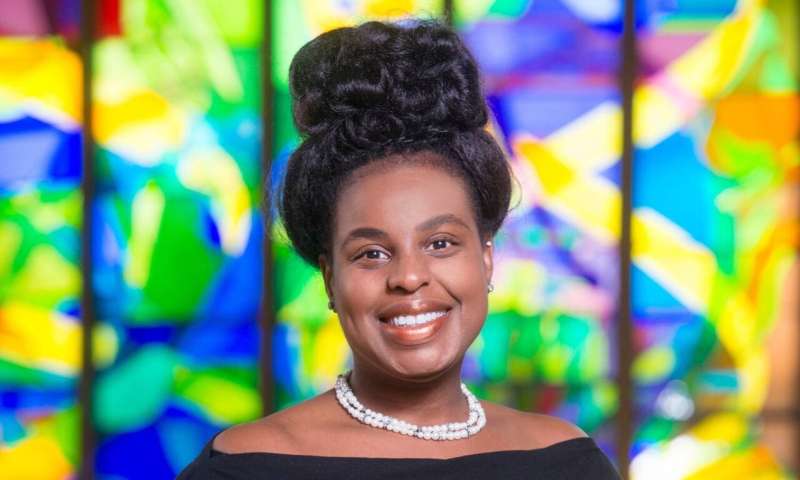Understanding the Biology of Obesity with Pennington Biomedical's Dr. Urusla White

BATON ROUGE—Individuals with obesity are at risk of developing diseases like Type 2 diabetes and cardiovascular disease. Dr. Ursula White, assistant professor of clinical science at Pennington Biomedical Research Center and the director of the Physiology of Human Adipose Tissue Laboratory, studies the biology of obesity to investigate why this happens, in the hopes that with better understanding will come options to prevent or treat these diseases.
"The complex biology of obesity as a disease and its health consequences are centered around the actions of the adipose, or fat, tissue," she said. ''There's also this idea of individuals with metabolically healthy versus unhealthy obesity, and the differences are partly related to the fat tissue."
White grew up hearing her great grandmother and others say things like, "I have the sugar," referring to Type 2diabetes.
"I didn't understand the biology, but I knew they had to take medications, and it impacted their body and quality of life in a negative way," she said.
Today, Dr. White studies adipose tissue, which stores fat and releases factors that communicate with various organs in the body to regulate metabolism. It is known that the ability of adipose tissue to expand and store fat is important for health, but how this occurs is not yet fully understood.
Dr. White currently studies what happens to the body and fat tissue during periods of weight gain and loss (i.e. cycling).
"Over the holidays, or during COVID, you gain a small amount of weight, and your pants feel snug. Immediately after, you lose weight," she said. "You think it's all good, but is it really good? Have you changed your body or physiology in a way that you've impacted your health, or made it where you're not able to lose weight as efficiently in the future? We're still searching for a solution."
For more information on Dr. White's research, visit the Physiology of Human Adipose Tissue Laboratory website at https://www.pbrc.edu/research-and-faculty/research-programs/Clinical-Science-Labs/physiology-of-human-adipose-tissue.aspx.
About the Pennington Biomedical Research Center
The Pennington Biomedical Research Center is at the forefront of medical discovery as it relates to understanding the triggers of obesity, diabetes, cardiovascular disease, cancer and dementia. The Center architected the national "Obecity, U.S." awareness and advocacy campaign to help solve the obesity epidemic by 2040. The Center conducts basic, clinical, and population research, and is affiliated with LSU.
The research enterprise at Pennington Biomedical includes over 480 employees within a network of 40 clinics and research laboratories, and 13 highly specialized core service facilities. Its scientists and physician/scientists are supported by research trainees, lab technicians, nurses, dietitians, and other support personnel. Pennington Biomedical a state-of-the-art research facility on a 222-acre campus in Baton Rouge.
For more information, see www.pbrc.edu.
Provided by Louisiana State University